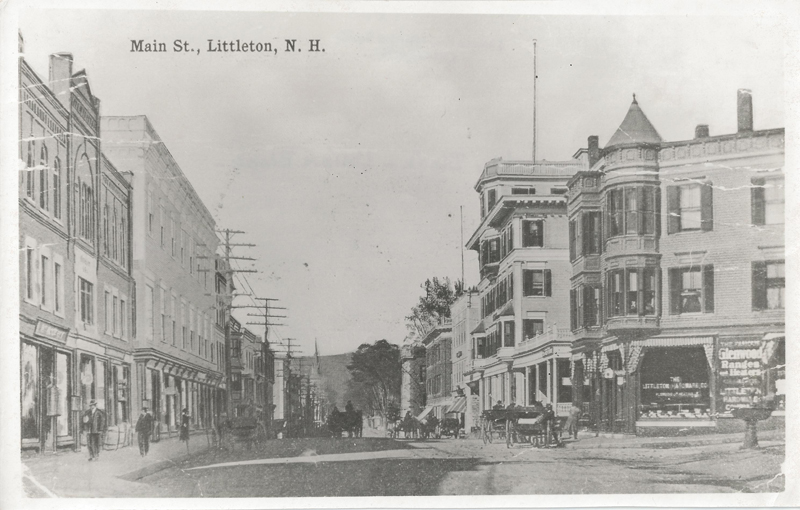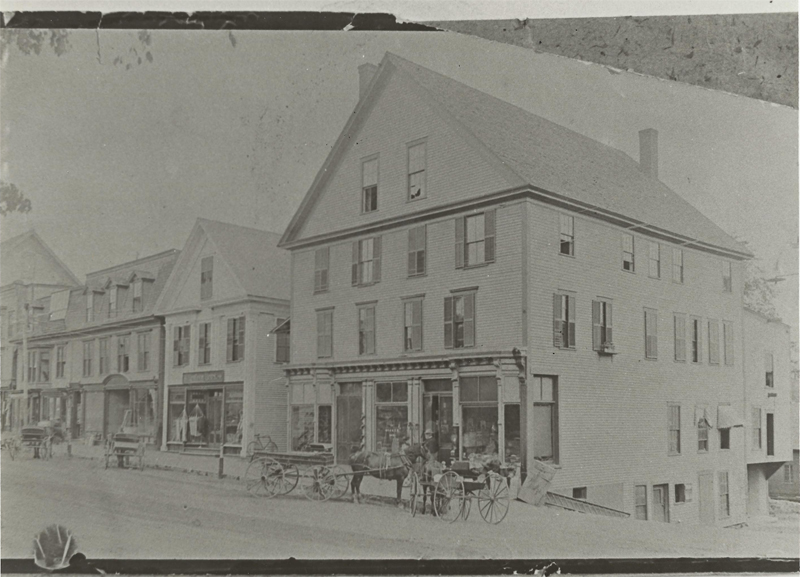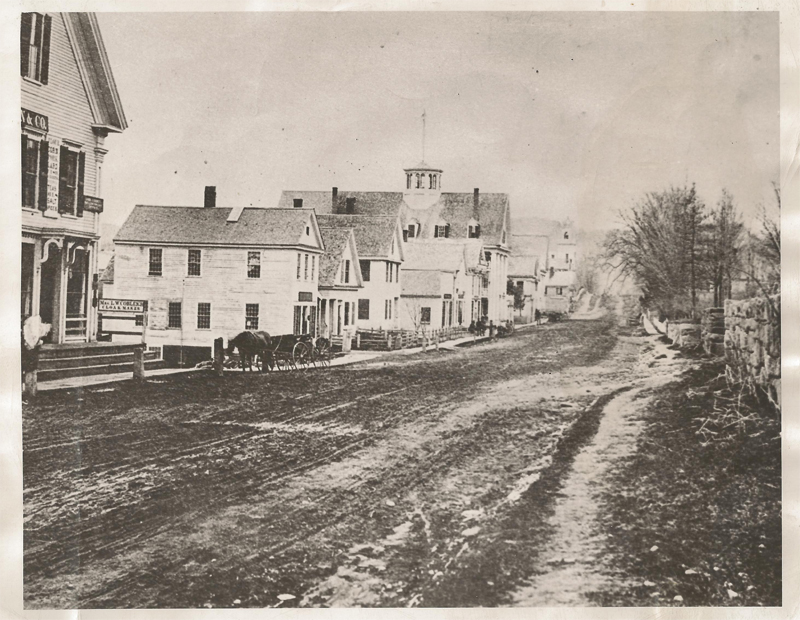LITTLETON HISTORY
Discover the Rich History of Littleton, NH
Rivers, Roads, and a Legacy of Innovation
Littleton, New Hampshire, boasts a fascinating history steeped in commerce, service, and industry. From the power of its rivers to the transformative arrival of railroads, Littleton’s evolution has positioned it as a cornerstone of Northern New England’s economy.

Rivers and Roads: The Foundation of Littleton’s Growth
Littleton’s story begins in the 1760s when settlers, encouraged by Governor Benning Wentworth’s township grants, ventured into the fertile river valleys of the Connecticut and Ammonoosuc Rivers. These waterways, with their steep descents, fueled early commerce. Mills processing wood and grains later gave way to tanneries and factories producing shoes, gloves, and harnesses, laying the groundwork for a skilled and industrious workforce.
The Ammonoosuc River was a hub of activity, powering up to ten mills at its height. Littleton’s strategic location on the Connecticut River made it a natural conduit for trade, solidifying its prominence in regional enterprise.

The Iron Horse Arrives
The mid-19th century brought the railroad, a transformative force for Littleton’s economy. Tracks extended from Concord to Plymouth, then northwest to Woodsville before following the Ammonoosuc to Littleton. By 1853, Littleton became the region’s rail terminus, creating a bustling center of commerce that attracted banks, lawyers, and luxury hotels.
The prosperity of this era is evident in the charming architecture of Littleton’s Main Street, built during this golden age. The railroads brought goods, tourists, and economic opportunity, firmly establishing Littleton as a vital crossroads of Northern New England.
Industry and Innovation
As the 20th century dawned, Littleton’s industrial base began to shift. The Kilburn brothers pioneered the stereoscopic industry, producing sought-after photographic cards depicting scenic and exotic locales. The 1950s saw the construction of the Samuel C. Moore Power Station, harnessing the Connecticut River’s energy to produce over 200 million kilowatt hours annually. This project not only boosted the local tax base but also brought skilled professionals to the area.
The completion of the federal Interstate Highway System in the 1980s ensured that Littleton remained a hub for trade and transportation, cementing its role as a gateway to the White Mountains and beyond.

Hospitality and Recreation: A Heritage of Welcome
Littleton’s legacy extends beyond industry to its warm embrace of visitors. From the 19th-century railroad hotels like Thayers Hotel to the grand resorts of the Gilded Age, Littleton has long been a destination for travelers seeking the beauty of the White Mountains.
The motorcar era brought a new wave of adventurers, and Littleton evolved to cater to motorists, hikers, and campers. The establishment of the White Mountain National Forest in 1918 preserved the region’s natural splendor, attracting outdoor enthusiasts and artists alike.
Winter Wonderland
By the mid-20th century, skiing transformed Littleton into a year-round destination. The completion of the Cannon Mountain Aerial Tramway in 1938 ushered in a vibrant winter tourism industry, with snow trains and family-friendly ski resorts boosting the local economy.
A Living Legacy
Today, Littleton continues to thrive as a center of commerce, culture, and hospitality. Its rich history is preserved through initiatives like the Littleton Historic Walking Tour, which invites visitors to explore Main Street’s storied past.
To learn more, visit the Littleton Historical Society or the Historical Museum at the Littleton Opera House. Dive deeper into Littleton’s history and discover why this charming town remains a beacon of innovation and community spirit.
HISTORIC WALKING TOUR
Download the Littleton Historic Walking Tour brochure and start your personalized journey through history today.
“Owing to its position Littleton is a trading center for a large part of this region. Its stores have a metropolitan air about them, well suited to the large summer population that comes to Littleton for supplies. Its railroad station, which serves Bethlehem and Franconia as well as Littleton, is the busiest north of Concord.”
-New Hampshire: A Guide to the Granite State Works Progress Administration, 1938

